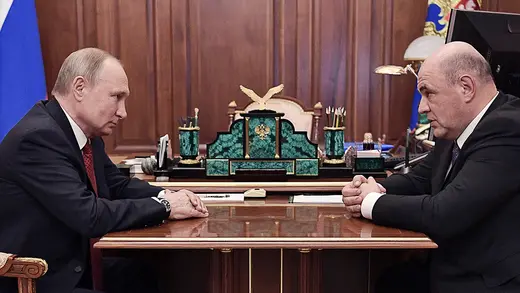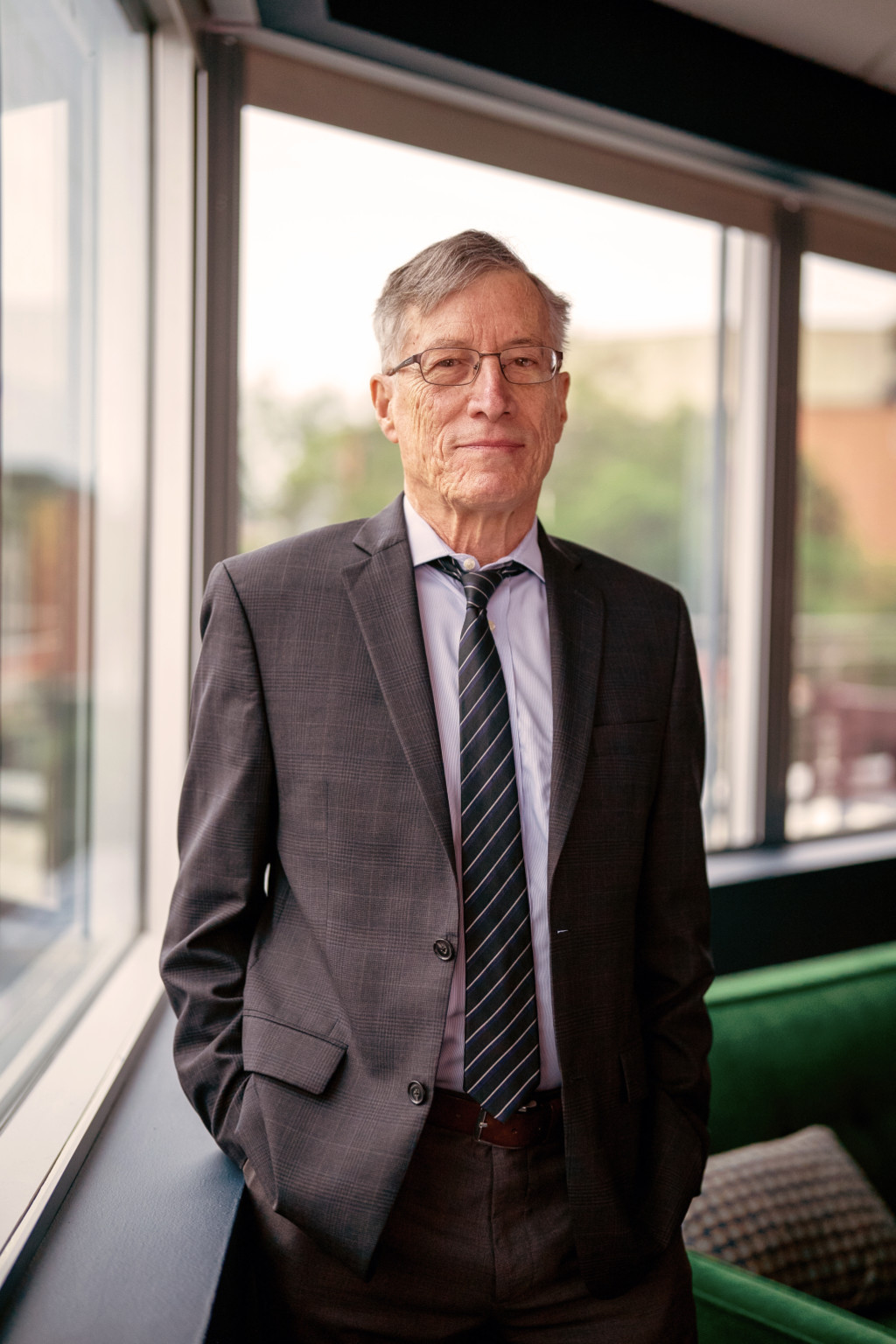What to Expect From Putin’s Shake-Up
President Putin’s sweeping moves to shift government power reinforce his own claim to leadership beyond 2024, but also set in motion competition for influence throughout Russia.
By experts and staff
- Published
Experts
![]() By Stephen SestanovichGeorge F. Kennan Senior Fellow for Russian and Eurasian Studies
By Stephen SestanovichGeorge F. Kennan Senior Fellow for Russian and Eurasian Studies
Russian President Vladimir Putin’s surprise proposals to reorganize the country’s constitutional structure is his latest and most important answer to the question that has dominated Moscow’s political discussion for the past year: What happens when his presidential term ends in 2024?
Putin says he wants a weaker presidency, a stronger parliament that will be responsible for picking the prime minister, and a beefed-up State Council—to be chaired, presumably, by him. The pace of change, it seems, will be quick: Putin named a new prime minister the same day he announced his proposals and called for an early popular vote to endorse them.
These sudden moves underscore the president’s full control over the Russian political system. Its structure—and the people who occupy the top positions—depends on his decisions, and on virtually nothing else. But it will also be important to watch for new political dynamics as the system’s institutions are reshaped.
Four factors will be crucial.
The State Bureaucracy
Giving some parts of the Russian constitutional order a face-lift will only increase the power of those parts that aren’t being changed. The biggest beneficiaries of two decades of Putinism have been the ministries and other organs of the Russian state, especially what might be called the military-intelligence complex.
The constitutional amendments Putin is proposing do nothing to change this. For the foreseeable future, they will, in fact, enhance the autonomy of bureaucrats at every level (and, in all likelihood, the temptation to abuse their power).
The Insider Power Struggle
Outside of the state bureaucracy, some positions will become more powerful; others, less. A struggle will commence to figure out which are which, and to claim the important jobs. Will control over parliamentary mechanisms—until now, largely ceremonial—actually begin to matter? Will a job in the Presidential Administration—for years the seat of real decision-making—now confer less power? If so, how will one be able to gain a foothold in the State Council?

Russians call this kind of competition “the struggle under the carpet,” and one hint as to how it will be waged could be hidden in the choice of the new prime minister, Mikhail Mishustin. Having run the federal tax agency for a decade, he has had access to, or could create, compromising information about virtually everyone in Russia. This new role could conceivably make him a neutral political arbiter—or (the better bet) the referee of an extremely dirty process.
Reviving the Ruling Party
One challenge for Putin in proposing to shift more power to parliament is the failure of the party he created, United Russia, to become a well-functioning organization with a coherent platform and real popular support. Known by its opponents as the “party of crooks and thieves,” United Russia has been able to preserve a strong majority in the Duma, the lower house of parliament, but its overall powerlessness has paradoxically made electoral success easier.
If elections start to matter more, United Russia will have to up its game. Last year’s opposition successes in Moscow local elections suggest the many pressures that the ruling party will face.
New Power Brokers
Because it will likely take Putin some time to work out kinks in his new institutional design, any political players who see opportunities to act on their own should be expected to seize them.
A game of constitutional musical chairs in Moscow could create opportunities (some will see them as imperatives) for private initiative far from the capital. Does an enterprising regional governor decide to set his own rules for foreign investment? Does a mayor put the squeeze on businessmen who may not be as well-protected by friends in the Kremlin as they used to be? Local politicians and entrepreneurs will not necessarily see Putin’s mastery of the succession process as a reason to limit their own empire-building.
The bottom line: Putin’s plan to tweak Russia’s constitution underscores his political dominance. But it also introduces new tensions within the system that are likely to challenge the power and interests not only of other actors, but his own as well.
